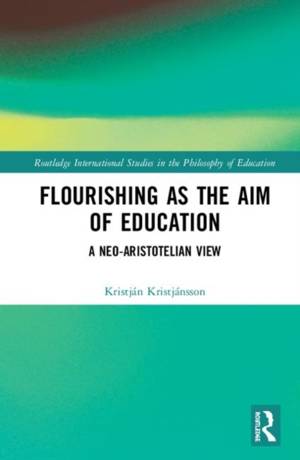
- Retrait gratuit dans votre magasin Club
- 7.000.000 titres dans notre catalogue
- Payer en toute sécurité
- Toujours un magasin près de chez vous
- Retrait gratuit dans votre magasin Club
- 7.000.0000 titres dans notre catalogue
- Payer en toute sécurité
- Toujours un magasin près de chez vous
Description
This book develops a conception of student flourishing as the overarching aim of education. Taking as its basis the Aristotelian concept of eudaimonia, it provides a theoretical study of the foundations of flourishing that goes well beyond Aristotle's approach.
Flourishing as the Aim of Education argues that the 'good life' of the student, to which education should contribute, must involve engagement with self-transcendent ideals and ignite awe-filled enchantment. It allows for social, individual and educational variance within the concept of flourishing, and it engages with a host of socio-political as well as 'spiritual' issues that are often overlooked in literature discussing character education. Each chapter closes with food for thought for practitioners who can directly facilitate student flourishing.
An outgrowth of the author's previous monograph Aristotelian Character Education, this book follows new directions in questioning how to educate young people towards a life of overall flourishing. It will be of great interest to researchers, academics and post-graduate students in the fields of character education, moral education and moral philosophy, as well as to educators and policy-makers.
Spécifications
Parties prenantes
- Auteur(s) :
- Editeur:
Contenu
- Nombre de pages :
- 216
- Langue:
- Anglais
- Collection :
Caractéristiques
- EAN:
- 9781138612938
- Date de parution :
- 14-06-19
- Format:
- Livre relié
- Format numérique:
- Genaaid
- Dimensions :
- 160 mm x 239 mm
- Poids :
- 476 g

Les avis
Nous publions uniquement les avis qui respectent les conditions requises. Consultez nos conditions pour les avis.






